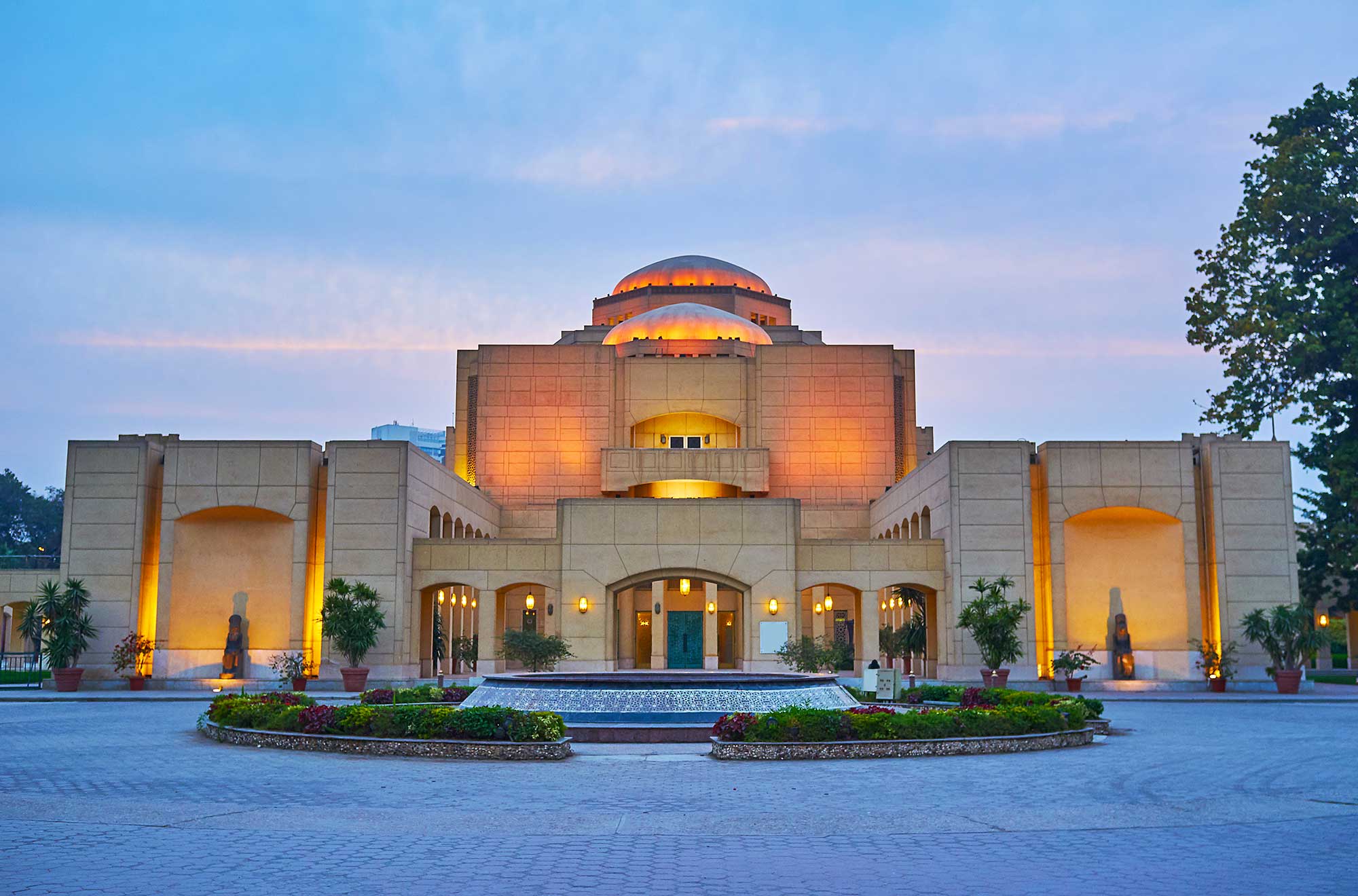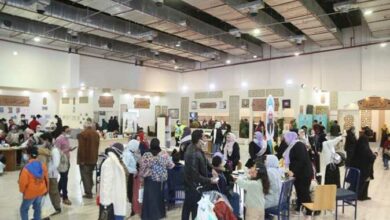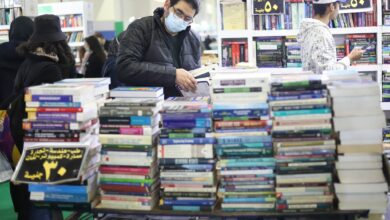When the Cairo International Book Fair became a casualty of the revolution, the book merchants of Azbakeya Market decided to take matters into their own hands. As many of them are quick to point out, the fair traditionally represented a significant portion of their annual income.
The fair, annually held during the last week of January, was first postponed, before being cancelled altogether, after what the now-former government had then hoped would only be a series of minor protests escalated into a full-scale revolution.
“We base our entire year around the book fair,” explained Harby Hassan Mohsib, owner of Dar al-Hassan wa al-Hussein, a bookstore in Azbakeya market specializing in rare prints and old publications. “This isn’t a lucrative business,” he said. “Most of my year’s earnings come straight from the book fair.”
The same can be said for the tens of other booksellers based in Azbakeya market, which occupyies a corner across from the National Puppet Theater, in the sprawling marketplace that is downtown Cairo’s Attaba Square.
“I would sell more books during that one week then I would for the entire year,” Reda Hasaan said of the fair, wiping the dust off a stack of old National Geographic magazines. “We all did, and we looked forward to the fair every year. Not out of pleasure, but pure survival. Without it we wouldn’t be able to feed our families.”
“When it was announced that the International Book Fair had been cancelled, we were terrified,” he said.
Eager to avoid financial ruin, the market’s booksellers got together and came up with a surprisingly simple solution. As Mohsbi explained, “We decided that if we wanted a book fair so badly, we’d start our own.”
The result was the first annual Azbakeya Book Fair, currently being held in the booksellers’ usual market location. Regular visitors to the market’s book section may be unaware of the fair’s existence; the narrow cubicle-like shops have always been this overflowing with books, and there are no noticeable signs or banners signifying the event. However, for the ten days of the Azbakeya Book Fair’s duration, a “National Unity Sale” will be taking place, meaning most of the items are being sold at drastically discounted rates—items being the keyword.
The Azbakeya Book Fair is not limited to books. While strolling through its constricted lanes, visitors to the market can also pick up plastic kitchen utensils, fake leather shoes, flamboyant–in some cases, studded–underwear, and toys suitable for pets or non-discerning children. Galabeyas, prayer rugs and a variety of incense and scented oils are also available. Regarding literature, the fair provides more than just books, with significant selections of old newspapers, magazines, textbooks on virtually every subject imaginable, and even a few instruction manuals, although mainly for contraptions rendered obsolete by modern technology. Also available are some excellent poster prints of old paintings normally found in retirement homes or hotels, like English landscapes, Victorian lovers, Spanish dancers, and–a favorite–kittens in a basket.
If anything, the Azbakeya Book Fair impresses due to the surreal wealth of its variety–where else could you find a copy of “Mein Kampf” nestled between “Kylie: The Story of a Pop Princess” and a pile of Burda’s from the mid-1980’s? Or a translated “Learn Kung-Fu with Bruce Lee,” complete with diagrams and written in a way that clearly advocates street-fighting (although that particular paperback is no longer available at the fair; this reporter bought it in a heartbeat–these are, after all, uncertain times).
Based on the level of attendance, the fair’s opening day seemed to be a success, and Mohsib, one of the leaders among the Azbakeya initiative, admitted to being pleased, if not entirely carefree. “One of the aims of starting our own book fair was to raise awareness of our market,” he said. “Not a lot of people knew about us–they just count on us to show up at the fair; they don’t know we’re here all year long.”
Like most of the country’s working groups today, Mohsib and the other booksellers also have a specific set of demands, which they hope the fair will bring attention to.
“We want to be in the care of the Ministry of Culture, instead of having to turn to the governor any time we need something,” the 56-year-old said, gesturing to the row of shops behind him, tiny stalls, their walls lined with books. “Despite what they look like, these aren’t cigarette kiosks, they’re bookstores, and the literary arts should fall under the Ministry of Culture’s responsibility.”
To their credit, though, the booksellers of Azbakeya have chosen not to take their demands to the street. “This is a sensitive time, and we understand that,” said Mohsib. “We’re not aiming to disrupt things, and neither should other people. People should go back to work, and think of a better, more level-headed way to raise awareness to their demands than just standing in the street, shouting and blocking traffic, and intentionally bringing things to a halt.”
For Mohsib, that “better, more level-headed way,” led to the first Azbakeya Book Fair, which he claims was a bonding experience for everyone involved. “It’s an idea we’re proud of,” he said, smiling. “With any luck, we won’t need to depend on the International Book Fair anymore.”
The Azbakeya Book Fair will run until 23 March.




